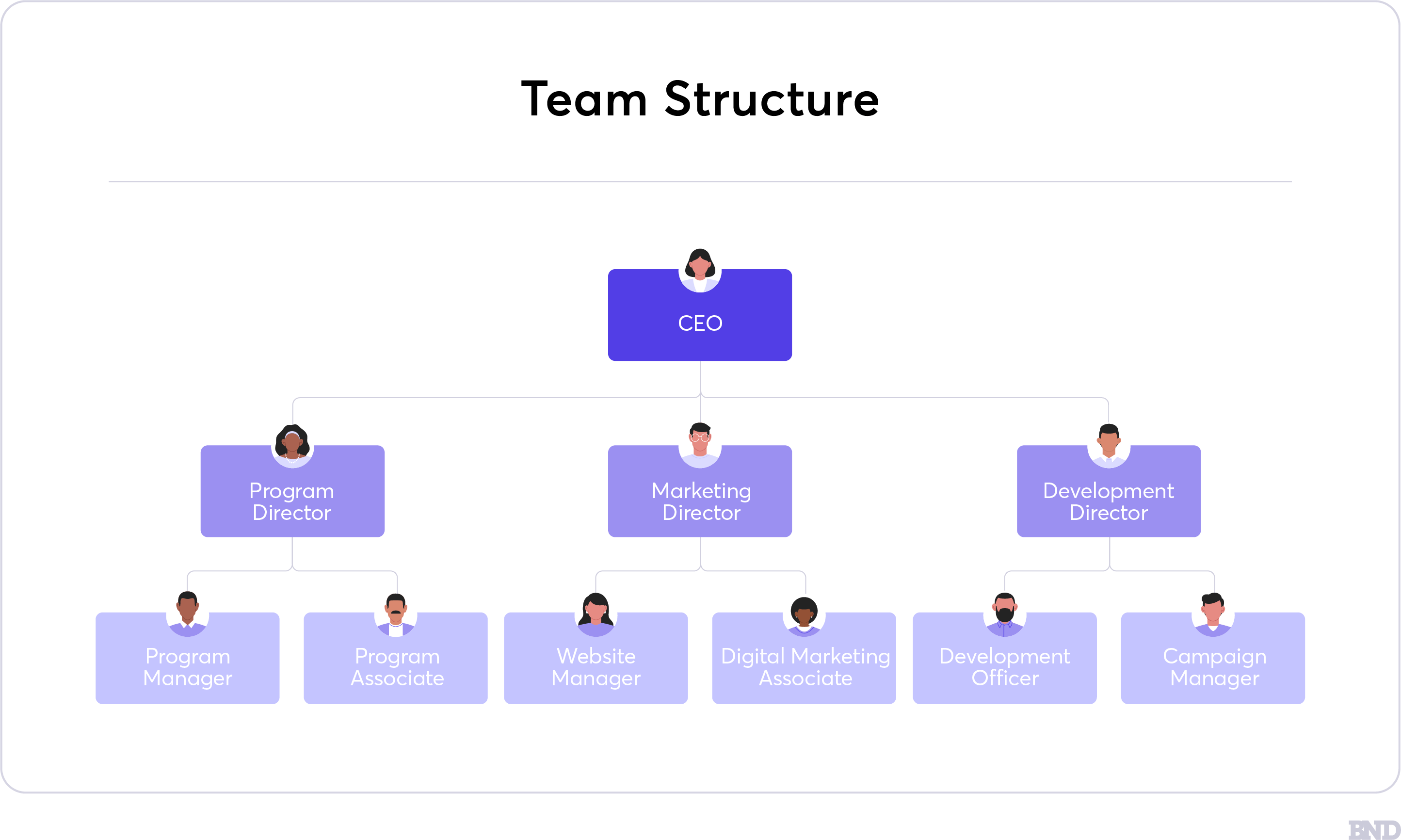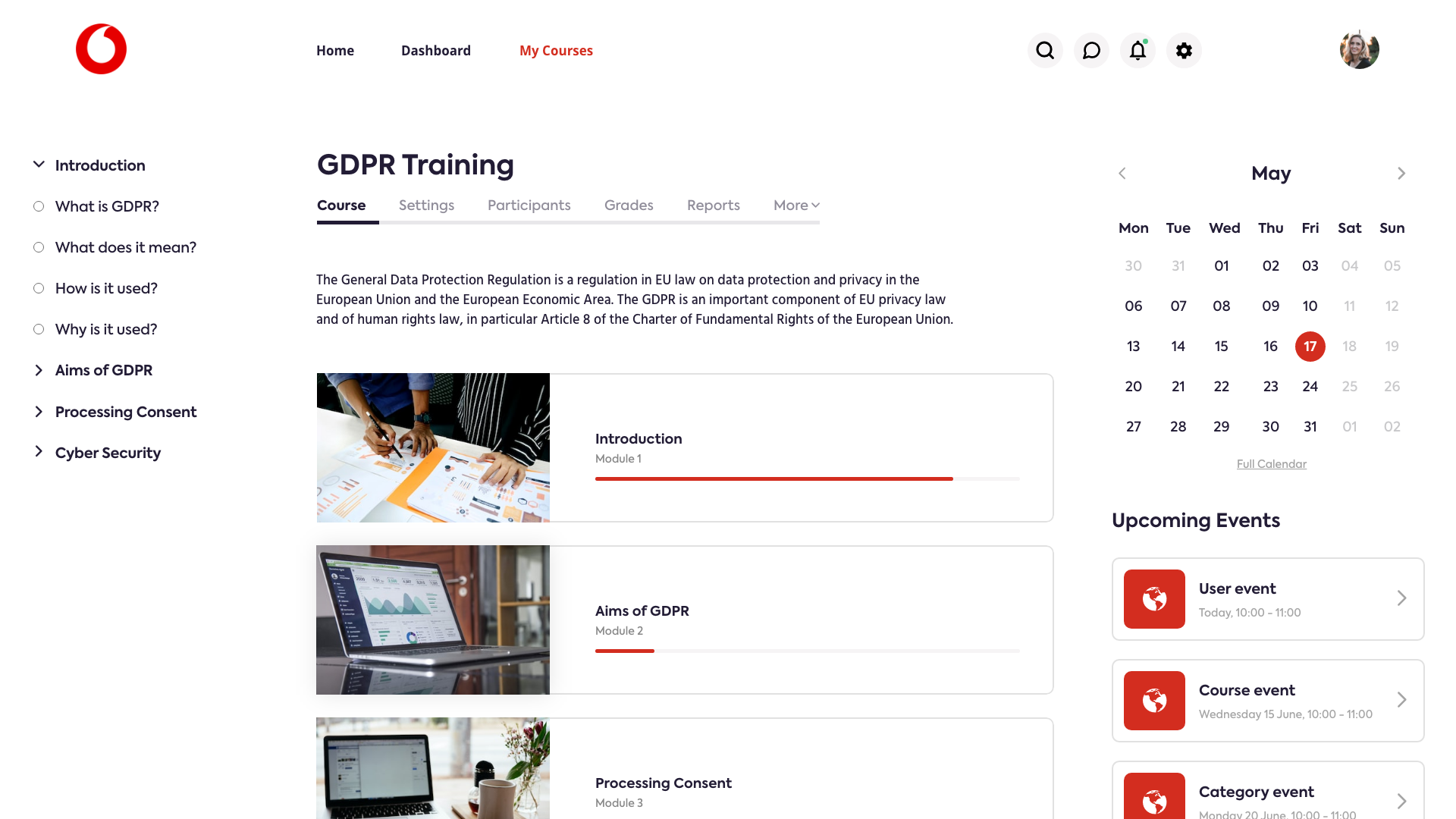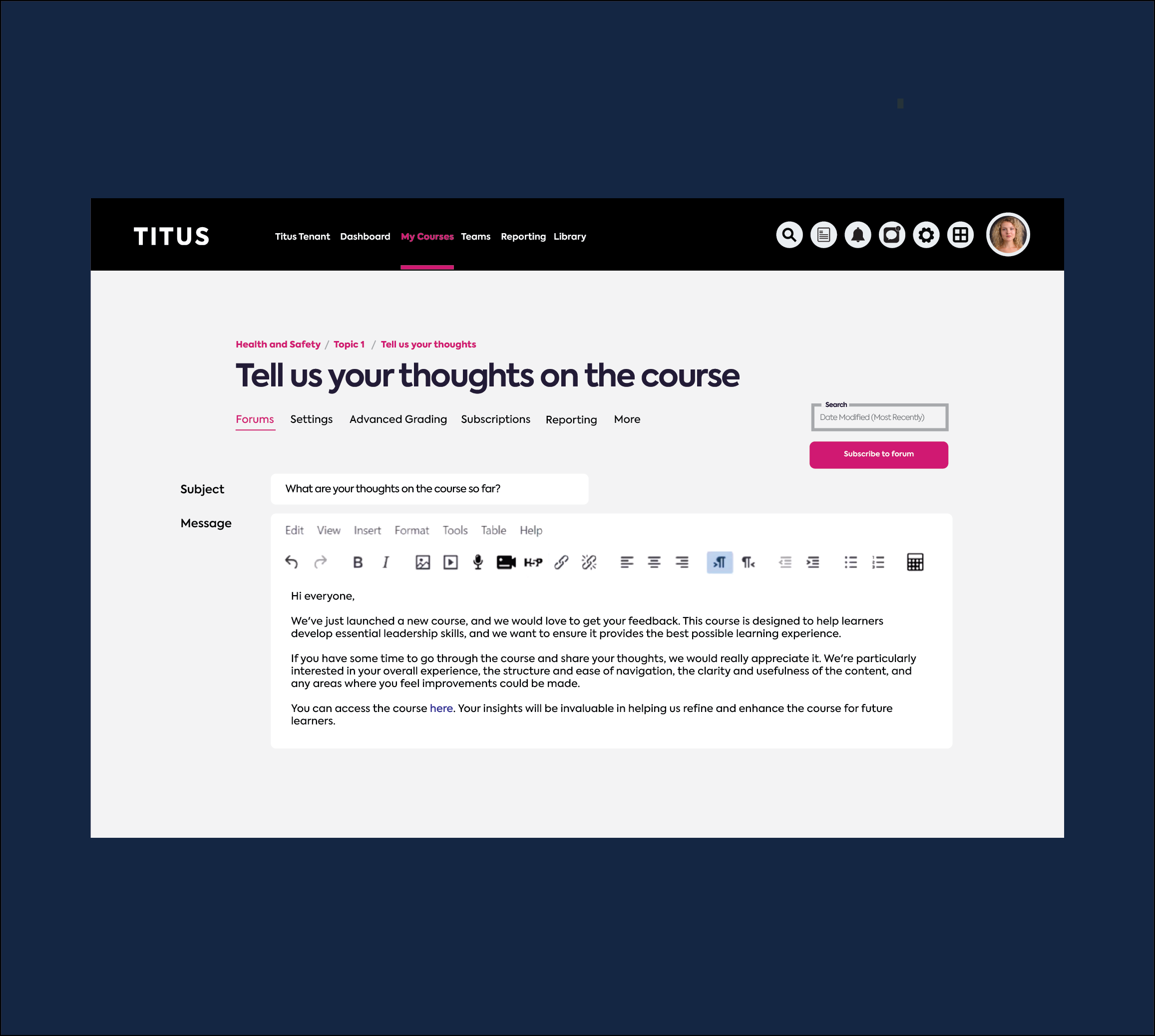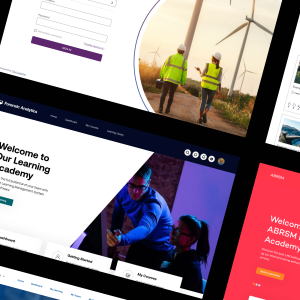Starting a new job is often stressful. The first few days in a company shape how a new hire feels about their role, their team, and the organisation. A well-structured induction process helps set expectations, communicate company values, and address early challenges.
A strong induction process also saves time and money by reducing confusion and improving employee retention. It doesn’t have to be a checklist of rules – done well, it helps new employees feel confident in their decision to join the company.
This guide covers the key elements of induction training and how to make it effective.
What is induction training?

Induction training introduces a new employee to their role and the company. The process varies between organisations – it can be a short session or last several months. The goal is to help new hires settle in, understand their responsibilities, and align with company culture.
What’s Typically Covered in Induction Training?
A good induction training programme gives new team members the knowledge and resources they need to hit the ground running. While the subject matter can vary between organisations, induction programmes typically cover the following areas:
1. Company Overview
New employees should understand the history of the company they’ve chosen to join. This could include history, the organisation’s mission, and your values. Explaining the company’s journey, key milestones, and long-term objectives helps employees see how their role fits into the bigger picture.
Providing real-life examples, like company achievements, successful projects and customer impact stories can make this more engaging. A welcome video from senior executives is a great way to reinforce company culture.

2. Policies & Compliance
Every organisation has policies that employees must follow. These typically include:
- Dress code – Expectations for professional attire, whether formal, business casual, or relaxed.
- Expense policies – Procedures for claiming work-related costs like travel expenses.
- Data protection and GDPR – Really important training on how to handle customer data.
- Health & safety – Share guidelines for workplace safety, emergency procedures and any industry regulations you adhere to.
Providing clear, accessible documents and an interactive Q&A session can help employees understand their responsibilities while avoiding unnecessary confusion.
3. Role-Specific Training: Responsibilities, Processes, and Tools
This section is critical in helping employees become productive in their roles. Training should provide:
– A detailed breakdown of job responsibilities.
– An introduction to the tools and systems they will use daily (e.g., CRM software, project management platforms, or internal communication tools).
– Guidance on workflows and reporting systems.
Some companies allocate mentors or encourage job shadowing during the first weeks. These are great initiatives that can improve confidence and knowledge retention.
4. Company Structure: Teams, Key Personnel, and Reporting Lines
Understanding how different teams collaborate within a business prevents confusion and improves efficiency.
- Organisational structure – Who are your senior leadership, managers, and team leads.
- Department functions – Avoid silo’s by sharing how each department contributes to the company’s success.
- Reporting structures – Who employees report to and how decision-making works within the organisation.
Including an organisational chart or arranging introductory meetings with key colleagues can help employees feel more connected and reduce uncertainty about whom to approach for specific tasks.
5. Future Development: Career Progression and Learning Opportunities

Employees who see clear development opportunities are more likely to stay engaged and committed. Induction should highlight:
– Career pathways within the company.
– Available training programmes and skills development workshops.
– Mentorship and coaching opportunities.
– How performance reviews and promotions are handled.
Companies that invest in employee development from day one create a workforce that is motivated, skilled, and aligned with long-term business goals.
6. Company Culture: Workplace Expectations and Team Dynamics
A company’s culture imapcts how employees interact, communicate, and engage with their work, it’s important to set standards early on by covering:
- Workplace etiquette – Expected behaviour, communication and standards.
- Team dynamics – Collaboration practices and cross-departmental interactions.
- Social opportunities – Team-building activities, company events, and informal gatherings.
Above all, new employees should feel welcomed, which is why sharing information around social initiatives early on can help make navigating the workplace easier.
7. Practicalities: IT Setup, Security, and Office Logistics
For employees to start working effectively, they need access to the right tools and infrastructure. Induction should cover:
- IT setup, including email access, software installations, and login credentials.
- Security access for office buildings, equipment, or restricted areas.
- A guided office tour (or a virtual one for remote workers).
- Remote work guidelines, including expectations for communication and productivity.
Providing a checklist of practical steps ensures employees can settle in quickly without unnecessary delays.
By covering key areas—company values, role expectations, career growth, workplace culture, and essential logistics—businesses can raise employee confidence and have their new team members start on the right footing.
Why a Good Induction Process Matters
Induction training isn’t just about ticking boxes and it ensures employees understand their responsibilities and your expectation. failure to cover GDPR in data-sensitive industries can lead to compliance risks.
A strong induction also helps employees align with company goals and values. When new hires understand their role within the bigger picture they are more likely to stay engaged and committed. Highlighting career development opportunities further improves retention.
You’ve invested time and resources in hiring the right person—induction training ensures they feel confident in their decision to join your team.
How to Create an Effective Induction Programme
1. Personalise the Experience
A generic induction process can feel impersonal and ultimately irrelevant. Tailoring onboarding to different roles so employees get the information they need without unnecessary details and information which is irrelevant to their role. For example, a sales hire needs product training, while an IT specialist requires cybersecurity guidance.
2. Use Technology to Improve Engagement
Technology should and will make induction more interactive and allow for greater consistency. A Learning Management System (LMS) allows employees to complete training at their own pace while tracking progress. Features like quizzes, gamification, and virtual tours prevent information overload.
Remote and hybrid employees can benefit from online learning to ensure consistency in training regardless of location.

3. Involve Senior Leaders
Hearing from company leaders helps new employees understand the bigger picture. Introductions from SLT —whether that’s through speeches, Q&As, or informal networking—reinforce company values and expectations.
Leaders can take the role of mentors by offering guidance and support in an employee’s early days. This shows that the company values new hires and invests in their success.
4. Encourage Social Integration
Building relationships early on improves engagement. A structured approach—such as buddy systems, team lunches, or group projects—helps new hires feel welcome. Virtual meetups or discussion forums can also provide a support network.
5. Make Induction an Ongoing Process
Induction shouldn’t be a one-time event. Providing access to continued learning—such as refresher courses, upskilling workshops, or mentorship—keeps employees engaged.
Regular check-ins and feedback sessions help measure the effectiveness of the onboarding process and identify areas for improvement.
6. Gather Feedback and Improve
An effective induction should evolve based on continous employee feedback. Surveys and post-induction reviews highlight what works and what needs adjustment. LMS analytics can also give insights into completion rates and engagement to help you to refine the process going forward.

How an LMS Can Improve Induction Training
Traditional onboarding often relies on in-person sessions and printed manuals. This approach can be inconsistent, time-consuming, and expensive. An LMS streamlines the process by centralising training materials, automating assignments, and tracking progress.
Benefits of LMS-Integrated Induction Training
- Centralised Access – Employees can complete training anytime, anywhere.
- Automated Assignments – Training modules can be assigned based on job roles.
- Compliance Management – Ensures completion of regulatory training (e.g., GDPR, health and safety).
- Interactive Learning – Gamification, quizzes, and simulations enhance engagement.
- Performance Tracking – Managers can monitor progress and address knowledge gaps.
Using an LMS for induction training ensures consistency, improves efficiency, and enhances the overall experience for new employees.
Overcoming Challenges in Induction Training
1. Managing Information Overload
New hires often receive too much information at once, making it difficult to absorb key details. To prevent overload:
- Break training into manageable sections over days or weeks.
- Use microlearning—short, focused training modules that cover key topics without overwhelming employees.
- Provide reference materials that employees can revisit when needed.
- Prioritise essential information first and introduce additional details gradually.
2. Ensuring Engagement and Participation
Keeping new employees engaged is crucial for effective onboarding, some ways you can improve participation include:
- Using interactive training methods, such as simulations, quizzes, and real-world scenarios.
- Providing group activities, buddy systems, or mentorship to encourage collaboration.
- Offer instant feedback and opportunities for discussion.
3. Using Microlearning
Microlearning can help to address both information overload and engagement challenges.
It involves delivering training in bite-sized lessons that focus on specific topics. This approach makes learning more digestible and easier to retain. Microlearning can look like:
- Short videos or interactive presentations.
- Quick quizzes or practical exercises.
- Scenario-based learning that applies concepts in real-life situations.
By addressing these challenges, businesses can create a frictionless and more impactful induction.
Key Considerations for a Strong Induction Process
1. Plan the Structure
Dumping too much information on a new hire is ineffective. Map out their induction journey to ensure they receive relevant information in a logical order.
2. Set the Right Tone
Your company’s personality should come through in the induction process. Whether your business is formal or relaxed, the training should reflect this to set expectations early.
3. Use Multimedia
A mix of content—videos, interviews, and interactive modules—makes learning more engaging. For example, a video from the Senior Team explaining company values often has more impact than a downloadable PDF.
4. Consider Timing and Location
Fast-paced businesses struggle to find time for structured induction training and this can lead to issues down the line. Providing a quiet, dedicated space—whether physical or digital can improves learning outcomes.
5. Introduce Key People
New hires should meet colleagues from different departments to understand how teams collaborate. Organising introductions helps them feel connected and understand their role in the business.
6. Balance In-Person and Online Training
Some elements of induction—such as meeting the team—are best done in person. Others, like compliance training, can be delivered through eLearning. A mix of both ensures efficiency without losing the personal touch.
Final Thoughts
A well-planned induction process helps new employees settle in, understand their role, and integrate into company culture. By combining structured training with personal engagement, businesses can improve retention and productivity from day one.
Investing in a strong induction programme ensures that new hires feel supported, valued, and prepared for success.







